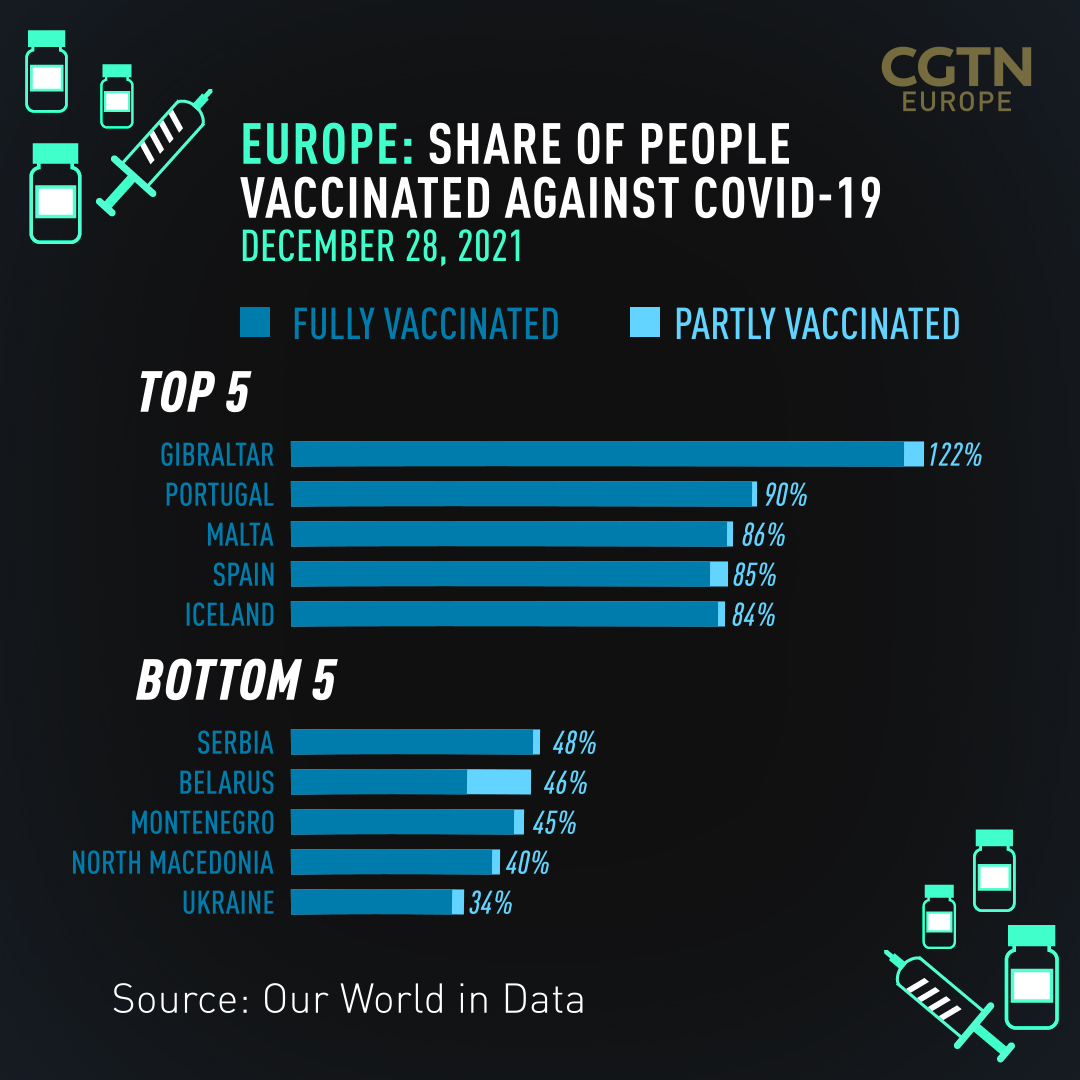
France has introduced new restrictions to curb the spread of COVID-19 after reporting over 160,000 new cases a day./Reuters/
France has introduced new restrictions to curb the spread of COVID-19 after reporting over 160,000 new cases a day./Reuters/
New COVID-19 rules have come into force in France to curb the spread of the Omicron variant, as it becomes the sixth nation in the world to surpass 10 million total recorded cases of coronavirus.
The latest restrictions were outlined last week, but many are only now being imposed in the new year.
They include working from home where possible, with employees facing possible fines of more than $1,000 for not conforming. As children head back to school, students have to undergo rigorous testing if a classmate tests positive.
READ MORE
UK hit by bird flu outbreak
What you need to know about Lateral Flow Tests
Top stories in China during 2021
Anybody over the age of six must wear masks in certain public spaces and in town centers. And from Monday, there will be limits of 2,000 people able to attend indoor events, or 5,000 people for outdoor ones.
The French government is also proposing changing the country's health pass into a vaccine pass. If approved, a negative test or recovery from the virus will not be accepted as a means of gaining entry to the likes of bars, restaurants and cultural venues, as only proof of full vaccination will suffice.
Do you think it is a good or bad idea? Vote in our poll and have your say
France has one of the EU's highest COVID-19 vaccination rates, with nearly 90 percent of those aged 12 and over fully jabbed but there are approximately 5 million who have not been.
00:25

The bill was debated in Parliament on Monday. Despite some objections, the measure has the backing of most parties and is almost certain to be passed by the lower house before being validated by the Senate later this week and officially be enforced from January 15.
Health Minister Olivier Véran said the law "responds to the pandemic in an efficient and gradual way, taking into account science and responsibility." He suggested it would avoid the likelihood of having to consider stricter constraints, such as lockdowns or curfews, in the long-term as the Omicron variant continues to produce record levels of infection.
"The tidal wave has indeed arrived, it's enormous, but we will not give in to panic," Veran told parliament.

Olivier Véran, Health Minister / Reuters
Olivier Véran, Health Minister / Reuters
Other European states, such as Greece and Czechia, have already introduced a vaccine pass, while Italy and Germany have made the passes mandatory for all workers.
As Parliament debated the legislation, French Prime Minister Jean Castex held a ministerial meeting to reassess the situation in hospitals, schools and the transport sector, amid concerns over shortages of staff.
Earlier, Veran announced that France has followed Spain and Ireland in cutting the COVID-19 quarantine period for fully vaccinated people from 10 days to seven, to enable people to get back to work sooner. Self-isolation for asymptotic people can be reduced to just five days with a negative test result.

